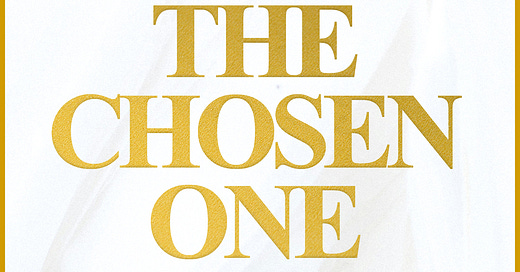Natasha Owens' song "The Chosen One" has stirred significant controversy, particularly among conservative Christians, by portraying former President Donald J. Trump in almost messianic terms. This is such an absurd compassion. While we can realize and respect diverse political views, equating a political figure with Christ is profoundly troubling and theologically unsound. This article aims to elucidate the absurdity of such a comparison, drawing from respected Christian thinkers and theologians, as well as Scripture.
Lyrics from "The Chosen One"
Owens' song contains lines such as, "He’s got the strength of a lion and the heart of a lamb," and "He’s the chosen one to bring us peace." These lyrics are particularly problematic as they closely echo biblical descriptions of Jesus. Revelation 5:5-6 describes Jesus as "the Lion of the tribe of Judah" and "the Lamb who was slain," emphasizing His unique role in redemption.
The Uniqueness of Christ
First and foremost, it is crucial to understand the uniqueness of Jesus Christ. Albert Mohler emphasizes that "the person of Jesus Christ is the ultimate revelation of God"1 and that any comparison diminishes His singular role in salvation history. Christ's life, death, and resurrection are central to the Christian faith and cannot be paralleled by any political leader.
The Danger of Idolatry
John MacArthur warns against the idolatry that can arise when humans elevate political leaders to divine status. He states, "Whenever we place our hope in any human leader to bring about salvation or ultimate justice, we are setting ourselves up for disappointment and straying from the gospel's message."2 Such idolatry not only misleads believers but also distorts the gospel's core message.
Political Leaders vs. Divine Savior
Lou Rockwell, while appreciating political accomplishments, reminds us that "political leaders are fallible and driven by various motivations, unlike Christ, whose sole purpose was to fulfill God's will."3 This distinction is crucial in maintaining a clear boundary between reverence for Christ and respect for political figures.
Tucker Carlson also provides a pragmatic perspective, stating, "When we start to see political leaders as messianic figures, we lose sight of their fallibility and the democratic principles that should guide their leadership."4
The Role of Christian Leaders
Christian leaders like Mark Dever and Jonathan Leeman stress the importance of pointing congregants to Christ rather than political figures. Dever notes, "Our ultimate allegiance must always be to Christ, not to any earthly leader, no matter how much we may appreciate their policies."5 Leeman adds, "The church's mission is to make disciples of Christ, not followers of political ideologies."6
Historical Perspectives
John Owen and Charles Spurgeon also provide valuable insights. Owen argues that "comparing any human to Christ is not only theologically flawed but also undermines the gravity of Christ's work on the cross."7 Spurgeon eloquently states, "There is no savior but Jesus, and no king who can claim the throne of our hearts but He."8
The Misguided Comparison
Alex Jones, often controversial, surprisingly aligns with this perspective by acknowledging the danger in conflating religious devotion with political allegiance. He remarks, "While Trump has done much for our country, equating him with Christ is a gross misrepresentation of both his role and Christ's divine mission."9
Biblical Perspective
The Bible provides clear guidance on this matter. Isaiah 42:8 says, "I am the Lord; that is my name! I will not yield my glory to another or my praise to idols."10 This verse underscores the exclusivity of God's glory and the inappropriateness of attributing divine attributes to any human. Similarly, Acts 4:12 declares, "Salvation is found in no one else, for there is no other name under heaven given to mankind by which we must be saved," affirming that only Jesus Christ holds the power to save.
While Christians can appreciate and support the policies of various political leaders, it is theologically erroneous and spiritually dangerous to equate any human leader with Jesus Christ. As Christians, our ultimate hope and trust must reside in Christ alone, who is unparalleled in His divinity and salvific work. Natasha Owens' song "The Chosen One" serves as a stark reminder of the need to guard against idolatry and maintain the purity of our faith in Christ.
In conclusion, even though Natasha Owens claims to be a Christian, it can be challenging to see past the veil of idolatry in her song "The Chosen One." Elevating a political figure to a messianic status blurs the lines between faith and political allegiance, risking the danger of idolizing human leaders. As Christians, it's vital to discern where our ultimate allegiance lies and to guard against idolizing any person, including political figures, above Christ.
Mohler, Albert. “The Conviction to Lead: 25 Principles for Leadership That Matters”
MacArthur, John. “The Gospel According to Jesus: What Is Authentic Faith?
Rockwell, Lou. “Against the State: An Anarcho-Capitalist Manifesto”
Carlson, Tucker, various public statements.
Dever, Mark. “Nine Marks of a Healthy Church”
Leeman, Jonathan. “Church Membership: How the World Knows Who Represents Jesus”
Owen, John. “The Death of Death in the Death of Christ”
Spurgeon, Charles. “All of Grace”
Jones, Alex. Various works and public statements.
All Scripture is from the New International Version




